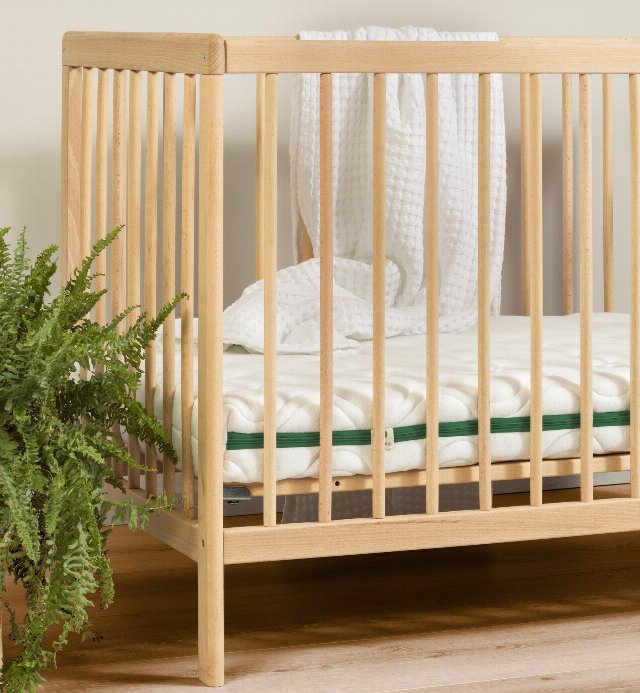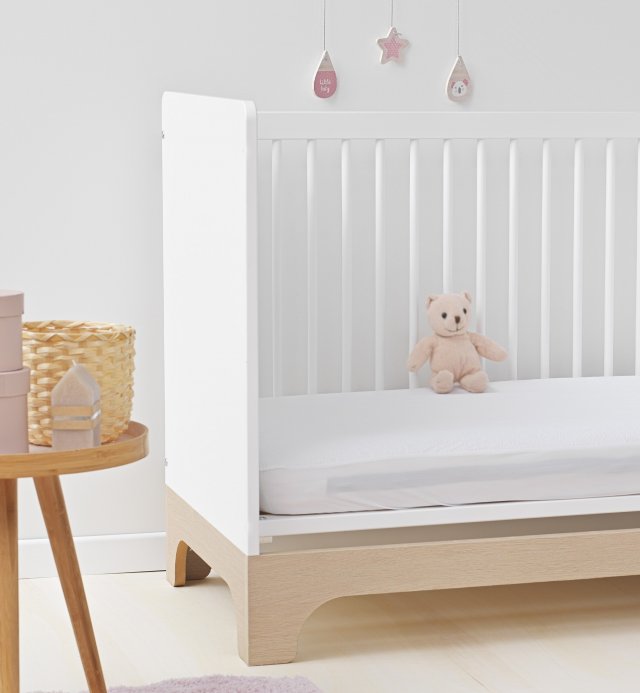Newborns, as they grow, can experience many changes in a very short period of time. One example is a baby’s sleep crisis at 4 months. When they start sleeping peacefully through the night, the routine is suddenly disrupted.
This is when parents, especially new parents, start to have doubts: is this normal, when will baby start sleeping like before again, how to overcome this crisis?
First of all, don’t forget that observing your little one is essential. So, before you get to that time, pay attention to everything your child does.
The more you know about your child, the better prepared you’ll be to deal with this 4-month-old sleep crisis.
What do you need to know about a 4-month-old baby’s sleep crisis?
Here are answers to some of the most common questions about sleep patterns at this age.
How much sleep should a 4- to 7-month-old baby get during the day?
As we said, this time is full of changes and one of them is that babies start to spend more time awake during the day.
As they become more aware of everything going on around them, they are also more easily distracted, which makes it harder to take naps or sleep at night.
In fact, they don’t want to go to sleep because they have too much fun when they are awake. Nonetheless, babies should sleep 12-16 hours a day, with naps varying in length (they can last anywhere from 30 minutes to 2 hours).
Is it normal for my 4-month-old baby not to fall asleep on his own?
Yes, this is normal and it will probably be even more difficult for him if he is used to falling asleep at the breast, with a bottle or in your arms. If you want to speed up this process, you can call in infant sleep specialists.
These professionals work to help them develop new sleep habits, sleep on their own and have fewer nighttime awakenings.
Why are sleep rituals important?
Mainly because they give them security: if we repeat the same habits every day, they can anticipate what’s coming next and their anxiety level is reduced. But these rituals don’t have to be complicated, far from it. Bath time, a soft, warm sleeping bag under their pajamas, a little background music or just your voice singing a song can be enough.
|
|
Does the room influence your baby’s sleep?
More than the room itself, it’s what’s in the room that counts. That means the mattress, the bed or even the sheets.
At Kadolis, we believe that every baby deserves a dream sleep, and for this, it is essential to surround yourself with noble and natural materials, the most suitable for an excellent quality of sleep. This is why we reject all chemical treatments.
In addition, we have obtained the most demanding certifications: OEKO-TEX® standard 100, Ecolabel, Eurolatex.
Details make the difference and sleeping on a mattress with a synthetic cover is not the same as sleeping on a mattress with a TENCEL™ cover with Aloe Vera coating. - By choosing this option, you make a healthier sleep possible and the air in the room is less polluted.
In addition, natural materials such as coconut or TENCEL™ repel dust mites and bacteria and are also anti-allergenic without the need for additional treatment.
The same is true for bedding. Not all fitted sheets take the same care of your baby’s delicate skin. Our line does because they are organic and provide a healthy sleep for babies.
What is the 4 month regression?
This is a stage where sleep cycles change from 2 to 5 sleep phases. This is an important change that affects many babies, resulting in more awakenings and especially more difficulty sleeping.
However, it’s important to remember that this regression doesn’t always happen or take place in the same way, but it’s best to be aware of the steps you can take. The big question: What can you do if your baby has a sleep attack?
- Pay attention to the signs: every move you see will give you clues as to how the seizure is progressing.
- Don’t be in a hurry. You know now that this is a stage full of changes, but remember that you are the key to getting through it. Don’t be afraid to try new methods if the ones you are using aren’t working.
- Don’t compare your little one to other babies - every child is different. The guides can give you some guidance, but it’s not an exact science. - Stick to your usual schedule, but be flexible if necessary.
- avoid creating additional sleep supports at this time, so as not to create a dependency on the baby each night.
And most importantly, remember that sleep specialists can help and accompany you at this stage. This is a relatively new but growing profession, so you can feel more confident and reassured.
In the meantime, if you want to make changes to your baby’s room to make it healthier, you can order our catalog here and discover the latest innovations. We will be happy to be by your side and inspire you during this important stage.


















Our readers' comments
My 4-month-old baby's sleep is disturbed these days
translated from french